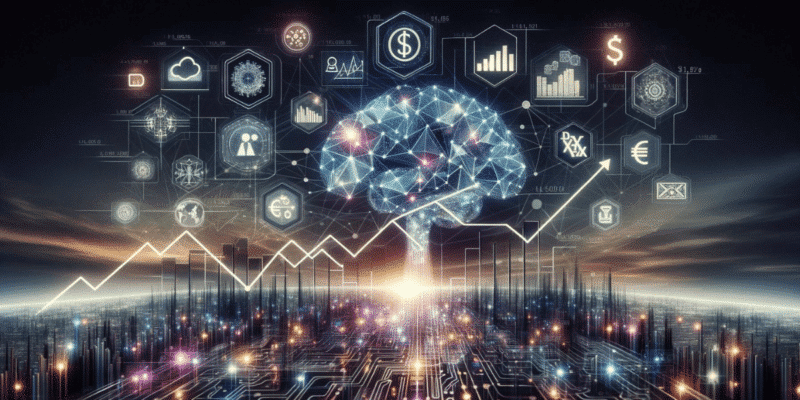The integration of Artificial Intelligence (AI) and Machine Learning (ML) into macroeconomics signifies a transformative era wherein technology reshapes the understanding and management of economic frameworks. Observations of the profound impact of AI and ML advancements on operational efficiency and customer service span across various sectors, including banking, finance, and insurance. This article delves into the pivotal role played by integrating AI and ML with macroeconomics in shaping forthcoming economic landscapes.
The Integration of Artificial Intelligence, Machine Learning, and Macroeconomics
The integration of artificial intelligence (AI) and machine learning (ML) into macroeconomic research marks a significant shift towards leveraging data-driven insights and predictive capabilities. Emphasizing the importance of technologies such as Avaya, Genesys, and Cisco in enhancing customer engagement and operational efficiency within the contact center domain has been underscored. Furthermore, there has been a focus on the utilization of AI and ML to analyze extensive datasets, identify patterns, and predict economic trends.
Predictive Analytics Plays a Crucial Role in Economic Forecasting
Utilizing predictive analytics to improve customer service is similar to economic forecasting, where AI algorithms analyze extensive amounts of past data to predict future economic situations. This feature empowers governments and businesses to make well-informed and strategic decisions, promoting a more stable and prosperous economic climate.
Policy Simulation and Optimization Using Artificial Intelligence
This acknowledgment of AI’s importance in simulating economic policy impacts is based on practical experience implementing technological solutions for intricate problems. Simulations offer valuable insights into fiscal policy results and are an efficient instrument for enhancing policy effectiveness and increasing economic well-being.

Improving Market Efficiency using Artificial Intelligence and Machine Learning
The contact center business has concentrated on technological improvements to enhance operational efficiency and customer satisfaction. Artificial intelligence (AI) and machine learning (ML) are making tremendous progress in financial markets by improving the process of determining prices, assessing risks, and detecting fraud. The utilization of artificial intelligence in algorithmic trading highlights the profound influence of these technologies on market operations, augmenting effectiveness and profitability.
Algorithmic Trading and Market Prediction
The accuracy and speed with which AI can execute transactions utilizing predictive models demonstrate the technology’s capacity to surpass conventional trading approaches. This exemplifies the broader range of experiences in implementing AI and ML to change customer service operations completely, demonstrating these technologies’ extensive usefulness and revolutionary capacity.

Artificial Intelligence in Public Finance Management
Simultaneously, with endeavors to expand consumer involvement through technological advancements, using AI in public finance management offers a crucial chance to improve the efficiency of tax collecting and government expenditure. This example demonstrates AI’s potential to enhance economic policies’ effectiveness and clarity.
Obstacles and Moral Deliberations
Incorporating artificial intelligence (AI) and machine learning (ML) into macroeconomics and other industries presents numerous obstacles and ethical difficulties, such as concerns about data privacy and the socioeconomic consequences of automation. This stresses the significance of wisely and proactively dealing with these challenges, emphasizing strategic problem-solving and operational excellence.
Key Takeaway
At the intersection of technology and macroeconomics, the undeniable potential of artificial intelligence (AI) and machine learning (ML) to reshape economic paradigms becomes increasingly apparent. While acknowledging this transformative power, it remains paramount to approach the integration of these technologies with caution, considering their ethical and societal implications for economic advancement. With a professional dedication to leveraging technology for enhanced efficiency and customer satisfaction, Navin Kamuni remains optimistic about collaborative efforts to explore and optimize the benefits of AI and ML in macroeconomics, paving the way for groundbreaking advancements and economic prosperity.
Possessing extensive expertise in the contact center industry across diverse sectors such as banking, finance, and insurance, Navin Kamuni stands out as a seasoned professional. His adeptness in enhancing customer service and operational efficiency through technological innovations, coupled with a deep understanding of AI and ML applications, solidifies his position as a respected expert in harnessing technology to achieve pivotal business objectives.
Published by: Holy Minoza












